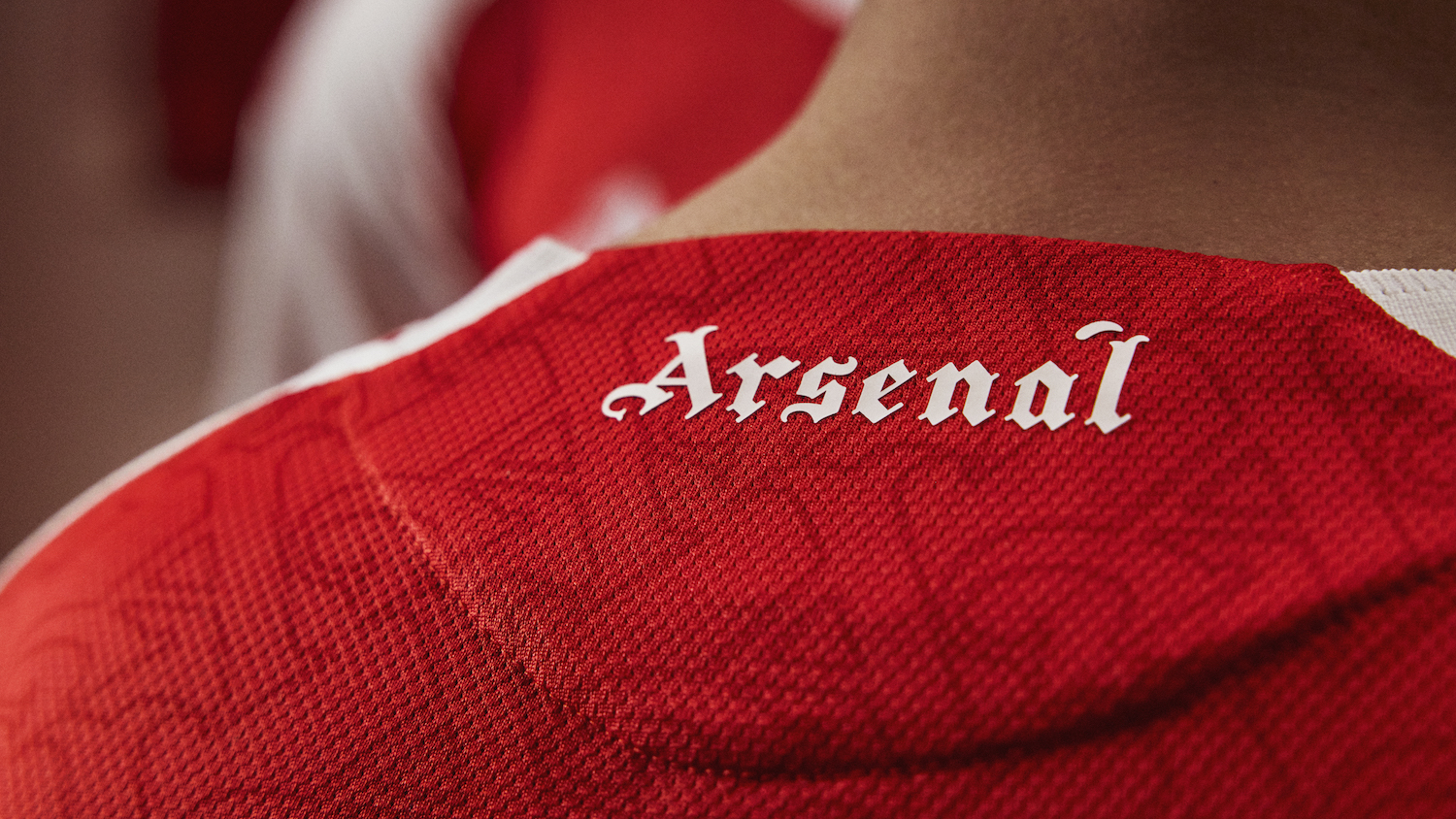The Winter League: How good is your Premier League side once the clocks go back?
Which clubs enjoy a winter wonderland between the time changes, and which teams suffer like slowly melting snowmen? FourFourTwo cracked out the spreadsheets to study the last five Premier League seasons
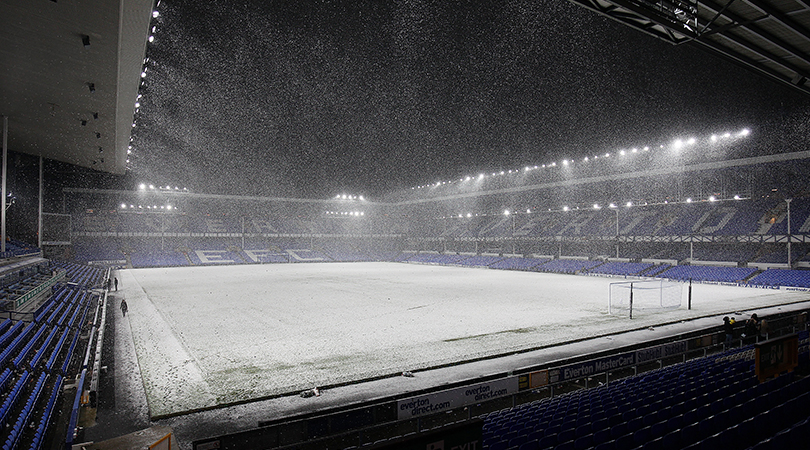
On the last Sunday in October, the "clocks go back" to mark the end of daylight saving time until the final Sunday in March. It's a turning point in the climatic seasons, and it can often be a turning point in the football season - will a team hit its stride and kick on through the short cold days, or will it suffer a winter of discontent?
With a spreadsheet and a spirit of investigation, FFT's number-crunchers analysed the last five Premeir League seasons for outliers, dividing each season into the Winter League - from the Sunday the clocks went back to the late-March Saturday hours before they went back forward.
We've compared each team's points per game (PPG) to their form over the full season, and denoted their resultant position in the mini-league – shaded green for better and red for worse. For reference, we've also shown the results outside of winter time - the BST, or British Summer Time, league. (Overall table at the bottom.)
2016/17
Undisputed champions Chelsea won the Winter League convincingly, gathering eight points more than their nearest competitors, but the more interesting stories lie elsewhere. In the 19 games of GMT, West Brom collected 33 of their eventual 45-point total, meaning they were almost three times as good in the winter.
Stoke also gathered 27 of their 42 points – must be all those wet Wednesday nights, etc – but by contrast, Arsenal won just 27 of their 75 points between the time changes. Elsewhere, Manchester United went unbeaten all winter.
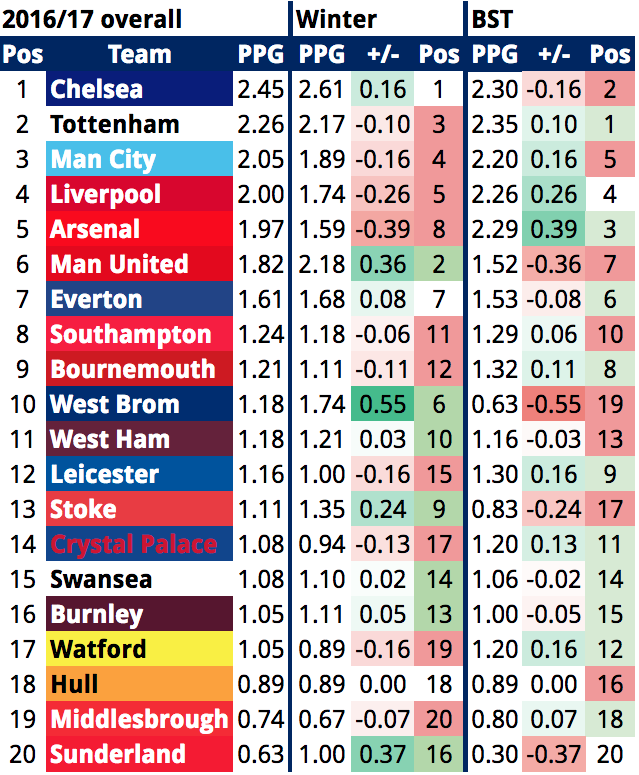
2015/16
The best features, fun and footballing quizzes, straight to your inbox every week.
Only Leicester and Tottenham gathered more points between the time changes than Stoke City, whose 1.62ppg winter rate dwarfed their relegation-shaped 1.00ppg in the warmer months. Newbies Bournemouth also knuckled down, winning 30 of their eventual 42 points between the time changes.
Three big clubs had notable dips in the winter, leaving them all pondering managerial change. Having started with seven wins from the opening nine, Manchester City went into winter top of the league; they came out of it fourth and having already given Manuel Pellegrini his notice. Their 1.45ppg winter average was only the division’s 11th-highest; across Manchester, United weren’t much better under Louis van Gaal, collecting 1.5ppg, while Arsenal conceded goals at a 50% higher rate in the winter.
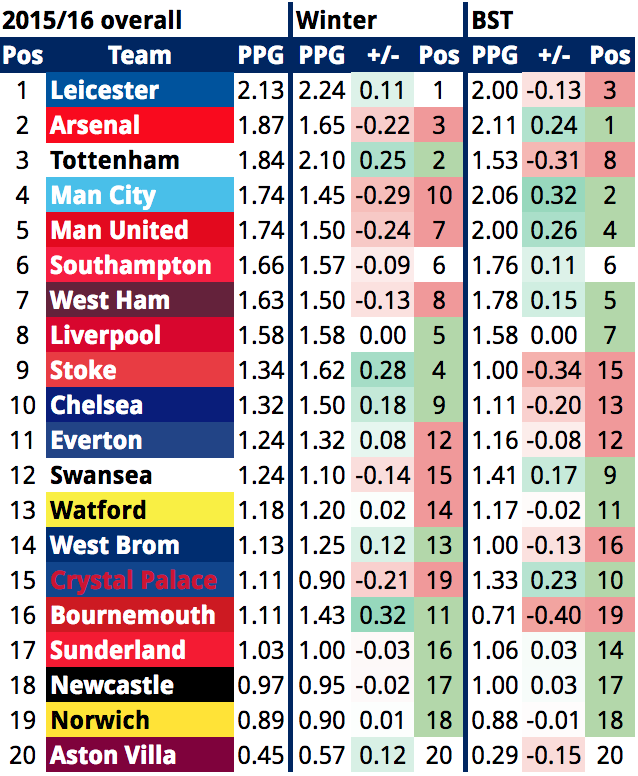
2014/15
Arsenal gathered the most points in the winter league but Chelsea might have if they'd played the same number of games; Mourinho’s Blues were consistent but Arsenal's drop from a winter average of 2.19ppg to a less thrilling 1.71 was the difference. Manchester United, Spurs and Liverpool also had strong winters bookended by tepid summers.
But the story of the season was Leicester’s recovery. When the clocks went forward in late March, they were bottom having gathered two points in eight games. They got 22 points from their final 10 fixtures to end with a summer-months average bettered only by Chelsea and Manchester City.
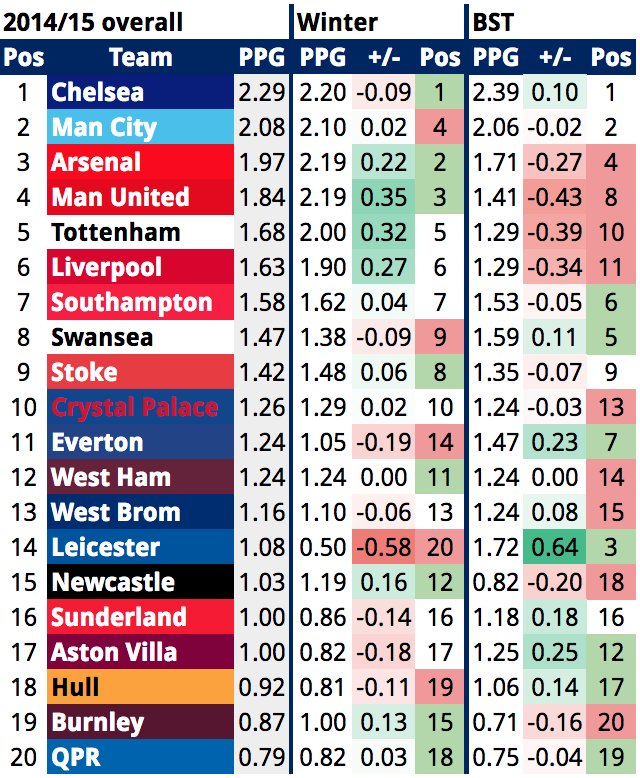
2013/14
Strong all season – they had to be, to hold off Liverpool’s best title challenge since the abolition of the backpass – Manchester City nonetheless upped the ante during winter, when they gathered 50 points from 20 games.
Alan Pardew’s Newcastle were a streaky side, and after losing at Sunderland on the day the clocks went back they won seven of the next nine en route to gathering a winter average of 1.59ppg, almost twice their BST rate of 0.88ppg. Norwich, too, had a relatively good winter, but their 1.09ppg was only good compared to their awful 0.56ppg either side of it, and they duly disappeared down the dumper.
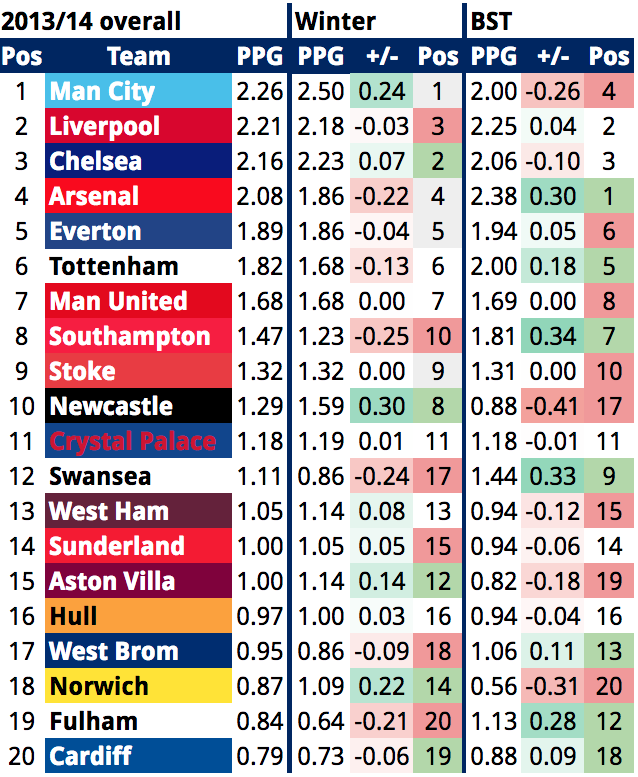
2012/13
Considering the subsequent criticism of the squad he left behind, Sir Alex Ferguson wrenched an extraordinary last winter out of Manchester United, taking 53 points out of 60 for a startling 2.65ppg – almost 50% better than nearest but distant rivals Manchester City (1.9ppg).
Down at the bottom end, QPR aspired to mediocrity and almost achieved it during the winter with 0.95ppg, a rate which over a full season would get you 36.1 points – more than all bar two of the 30 sides relegated from the Premier League during the last decade. Sadly for the Hoops, during BST they were utterly hopeless, gathering just five points from 17 winless games.
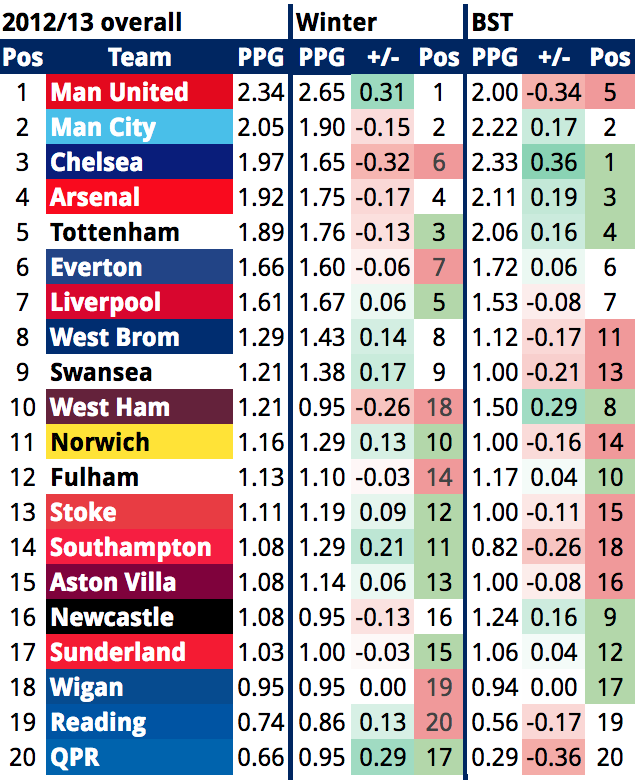
Overall
The last five years have produced four different champions, but double title winners Chelsea have been matched point-for-point by Manchester City: they are the only sides to average over 2ppg for half a decade. Arsenal, Spurs, Manchester United and Liverpool unsurprisingly follow on, but in the four post-Fergie seasons the Red Devils’ average has dipped from 1.88ppg to 1.77 – less than Liverpool. He’d hate that.
He would, however, be glad to see that Manchester United are still strong in the Winter League, matching co-leaders Chelsea for a 2.03ppg average. (United have also won the joint-most games in winter, along with Tottenham.) True, that is again influenced by Fergie’s farewell campaign, when in 20 winter games his side amassed 53 points – astonishingly, more than was collected in an entire 38-game campaign in 61 of the 100 cases during this half-decade sample. Without that haul, United’s winter average drops to 1.88ppg.
What also drops is Arsenal. In the 100 winter games during the last half-decade, their rate has fallen to 1.82ppg – not enough over a season to break 70 points. Four times in the last five seasons – the exception was 2014/15, when a strong winter wasn’t enough to compensate for a very slow start – their pace has slackened enough to drop between three and seven crucial points. Each time, had they maintained their BST ppg during winter they would have collected a trophy-bothering 80+ points, a level they haven’t reached for a decade.
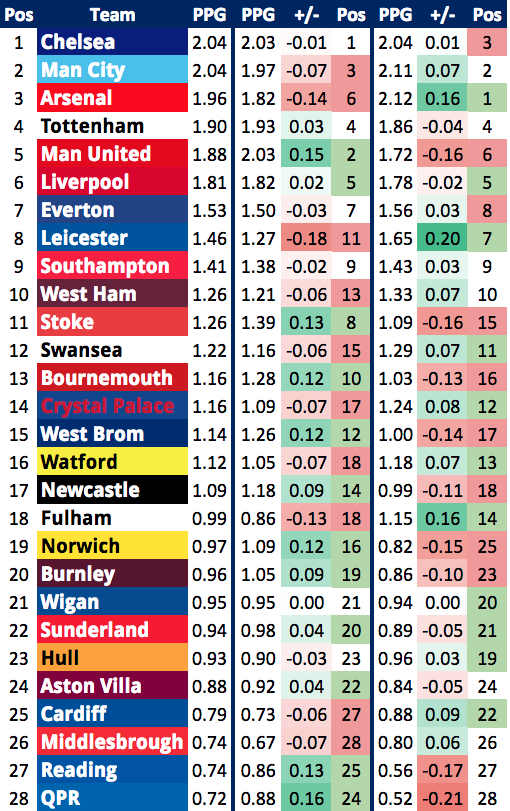
Gary Parkinson is a freelance writer, editor, trainer, muso, singer, actor and coach. He spent 14 years at FourFourTwo as the Global Digital Editor and continues to regularly contribute to the magazine and website, including major features on Euro 96, Subbuteo, Robert Maxwell and the inside story of Liverpool's 1990 title win. He is also a Bolton Wanderers fan.
 Join The Club
Join The Club





